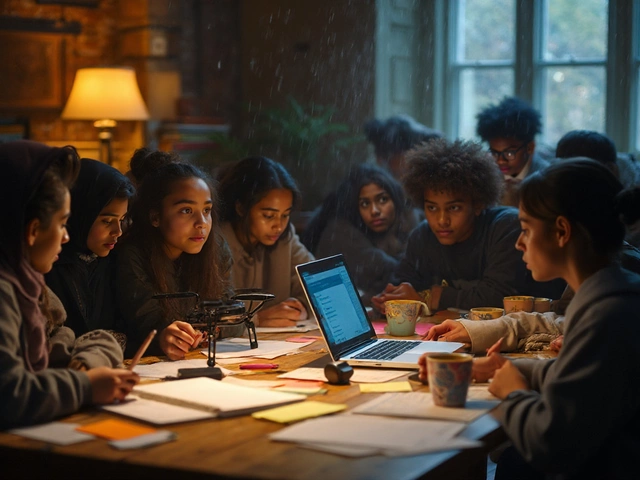Children Education – Practical Tips and Local Programs
Looking for ways to make learning fun outside the classroom? You’re not alone. Parents, teachers, and volunteers all want activities that keep kids curious and growing. The good news is that many simple options sit right in your community. From a school club that meets after lessons to a weekend outreach event, these ideas can boost confidence, social skills, and knowledge without adding stress.
Why Community Activities Boost Learning
When kids join a club or volunteer, they practice real‑world skills that textbooks can’t cover. They learn teamwork by planning a project, develop communication by sharing ideas, and build responsibility by sticking to a schedule. All of this helps them retain information better because they see how concepts apply to everyday life. Plus, the sense of belonging reduces anxiety and gives them a safe space to ask questions.
Research from local youth groups shows that participants often outperform peers in standard tests, especially in reading and problem‑solving. The secret isn’t a magical program; it’s the regular practice of thinking, speaking, and creating with others. That’s why community outreach isn’t just charity – it’s an education tool.
Easy Ways to Get Your Kids Involved Today
Start with what’s already happening nearby. Check the parish bulletin, community centre board, or school newsletter for clubs like robotics, gardening, or art. Most meetings are free or cost just a small material fee.
If you can’t find a perfect fit, consider starting a mini‑club at home. Gather a few neighbors, pick a theme (science experiments, storytelling, or cooking), and meet once a week. Keep it short—30 to 45 minutes—and let the kids pick activities. This builds leadership and decision‑making skills.
Another quick option is to join a charity outreach day. Many local charities need volunteers to sort donations, run games for younger children, or help with a community clean‑up. Bring a notebook so your child can write down what they learned about teamwork or the environment. Turn the experience into a conversation at dinner – ask what surprised them or what they’d do differently next time.
Finally, use online resources wisely. Websites from reputable NGOs often provide printable worksheets, video lessons, and challenge lists that complement in‑person activities. Pair a digital lesson with a hands‑on project, like building a simple water filter after watching a short documentary.
Remember, the goal isn’t to overload a schedule but to sprinkle learning moments throughout the week. A balanced mix of school, club, and family time creates a rich environment where children thrive academically and socially.

How to Set Up an After-School Club: A Simple Guide
Thinking about starting an after-school club? This comprehensive guide will help you navigate the essentials, from picking the right theme to finding the perfect location, and filling those seats with eager kids. We'll also dive into legal nitty-gritty, budget planning, and some handy tips for running a successful program. Start your journey to create a vibrant space for kids to learn and have fun.
Read More




